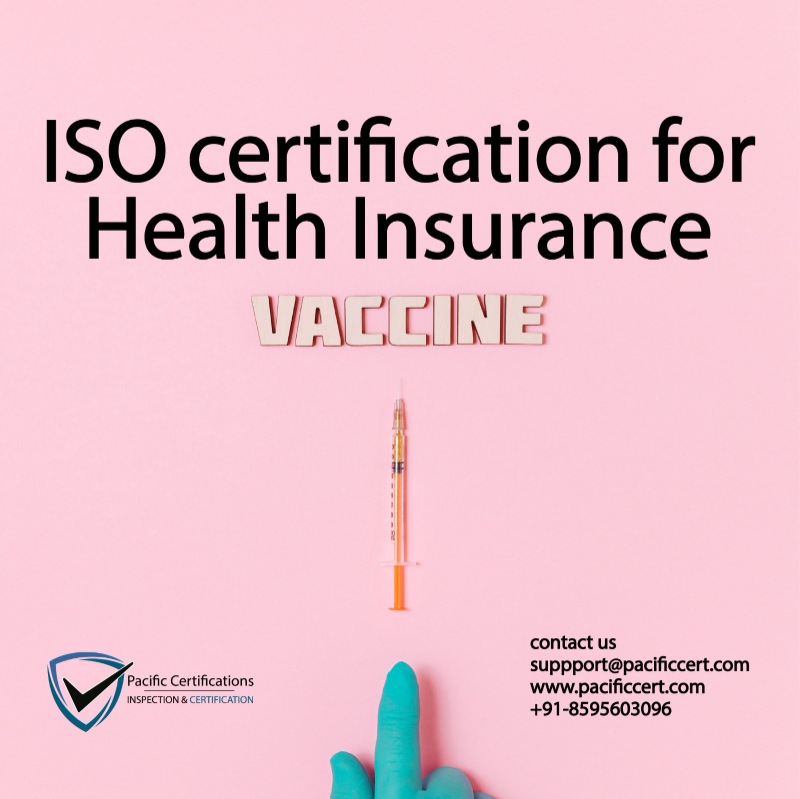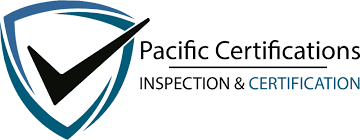ISO Certifications for Health Insurance Sector, Requirements and Benefits

Introduction
Health insurance providers operate in a highly sensitive, regulation-intensive, and service-critical environment where claims accuracy, data confidentiality, service continuity, fraud control, and regulatory compliance directly affect patient trust and healthcare access. Health insurers manage complex processes such as policy administration, premium collection, hospital network coordination, pre-authorizations, claims adjudication, reimbursements, fraud detection, and regulatory reporting—often under strict timelines and public scrutiny.
With rising healthcare costs, expanding digital health ecosystems, tighter data-protection laws, and increased expectations for fair and timely claims handling, health insurance organizations face growing pressure to demonstrate structured governance. ISO certifications have therefore become an essential framework for health insurers to formalize operational controls, protect sensitive health and financial data, ensure continuity of critical services, and strengthen confidence among regulators, healthcare providers, and policyholders.
In health insurance, trust is measured by how reliably care is supported when it is needed most.
Quick Summary
ISO certifications provide health insurance organizations with internationally recognized frameworks to manage service quality through ISO 9001, information security through ISO/IEC 27001, privacy protection through ISO/IEC 27701, business continuity through ISO 22301, IT service reliability through ISO/IEC 20000-1, enterprise risk governance through ISO 31000, and occupational health and safety through ISO 45001. These certifications strengthen claims governance, data protection, regulatory alignment, and operational resilience.
For more information on how we can assist your health insurance business to become ISO certified, contact us at [email protected].
Applicable ISO Standards for Health Insurance Sector
Below are the most relevant ISO standards applicable to health insurance companies, managed care organizations, third-party administrators (TPAs), and health benefits administrators:
ISO 9001 - Quality Management Systems
ISO 9001 supports consistency across health insurance operations such as policy issuance, network management, pre-authorization, claims processing, grievance handling, and customer communication through documented workflows and continual improvement.
ISO 27001 - Information Security Management Systems
Health insurers handle highly sensitive personal, medical, billing, and financial data. ISO/IEC 27001 provides a structured framework to manage cybersecurity risks and protect confidential policyholder and provider information.
ISO/IEC 20000-1:2018 – IT Service Management Systems
Claims engines, provider portals, mobile apps, and digital health integrations rely on reliable IT services. ISO/IEC 20000-1 ensures controlled change management, incident response, and system availability.
ISO 22301 - Business Continuity Management Systems
Claims settlement, pre-authorizations, and customer support must remain available during system outages or public health emergencies. ISO 22301 ensures resilience and continuity of critical health insurance services.
ISO/IEC 27701:2019 – Privacy Information Management Systems
ISO/IEC 27701 strengthens governance over personal and health data processing, ensuring lawful collection, storage, sharing, and retention of medical and insurance records in compliance with privacy regulations.
ISO 31000 - Risk Management
This standard provides guidelines on managing risk faced by organizations. Implementing ISO 31000 can help health insurance companies with risk assessment and risk management, which is a core part of their business.
ISO/IEC 27799 - Health Informatics
This standard provides guidelines for information security management in health using ISO/IEC 27002. It is a useful standard for health insurance companies handling large amounts of health-related data.
Click here to find out more applicable standards to your industry
What are the Requirements of ISO Certifications for Health Insurance Sector?
Health insurance organizations seeking ISO certification must establish and maintain documented policies, procedures, and records aligned with each applicable ISO standard. Key requirements include the following.
ISO 9001:2015 – Quality Management System
Define standardized workflows for policy administration and claims processing
Establish quality objectives linked to turnaround time, accuracy, and compliance
Implement document and record control for policies, claims, and communications
Monitor grievances, claim disputes, and corrective actions
Apply continual improvement across insurance operations
ISO/IEC 27001:2022 – Information Security Management System
Identify and classify medical, policyholder, and financial data assets
Conduct information security risk assessments and treatment planning
Implement access controls, encryption, and secure authentication
Establish incident detection, reporting, and response procedures
Monitor and review ISMS effectiveness
ISO/IEC 27701:2019 – Privacy Information Management System
Define roles as personal and health data controller or processor
Establish lawful basis for processing personal and medical information
Implement consent, retention, and data minimization controls
Manage data subject access, correction, and deletion requests
Maintain privacy risk assessments and breach response plans
ISO 22301:2019 – Business Continuity Management System
Identify critical health insurance services and dependencies
Conduct business impact analysis for service disruptions
Develop continuity and disaster recovery plans
Test continuity arrangements periodically
Train staff on incident response and service restoration
ISO/IEC 20000-1:2018 – IT Service Management System
Define service levels for claims, policy, and provider platforms
Control changes to core insurance and claims systems
Manage incidents, outages, and service disruptions
Monitor system availability, capacity, and performance
Drive continual improvement of IT service delivery
Tip: Start by mapping one complete health insurance lifecycle—from policy enrollment and provider network setup to pre-authorization, claims adjudication, payment, and grievance handling—against ISO requirements to identify data-control and service gaps early.
For further information on how we can assist your health insurance organization with ISO certifications, contact us at [email protected]
What are the Benefits of ISO Certifications for Health Insurance Sector?
ISO certifications are suitable for health insurers, TPAs, and managed care administrators. Key benefits include:
More accurate and timely claims processing, improving member satisfaction.
Stronger protection of sensitive medical and financial data, reducing exposure.
Improved continuity of critical insurance services, even during crises.
Enhanced fraud-risk and compliance governance, supporting regulators.
Higher confidence from healthcare providers, regulators, and partners, enabling growth.
Improved audit readiness and operational transparency, strengthening trust.
The global health insurance market continues to expand as healthcare costs rise, populations age, and coverage penetration increases. Industry analysis indicates that global health insurance premiums are expected to exceed USD 3 trillion annually, significantly increasing claims volumes, data processing demands, and regulatory oversight for insurers.
At the same time, regulators are strengthening expectations around data protection, fraud prevention, and operational resilience—especially following large-scale health emergencies and cyber incidents in the healthcare sector.
How Pacific Certifications Can Help
Pacific Certifications, accredited by ABIS, acts as an independent certification body for health insurance organizations by conducting impartial audits against applicable ISO standards. Our role is to objectively assess whether documented management systems and insurance operations conform to international ISO requirements, based strictly on verifiable evidence and records.
We support health insurance providers through:
Independent certification audits conducted in accordance with ISO/IEC 17021
Practical assessment of real claims workflows, data controls, and governance practices
Clear audit reporting reflecting conformity status and certification decisions
Internationally recognized ISO certification upon successful compliance
Ongoing surveillance and recertification audits
If you need support with ISO certification for your health insurance operations, contact us at [email protected]or +91-8595603096.
Ready to get ISO certified?
Contact Pacific Certifications to begin your certification journey today!
Author: Ashish
Suggested Certifications:
Read more: Pacific Blogs

